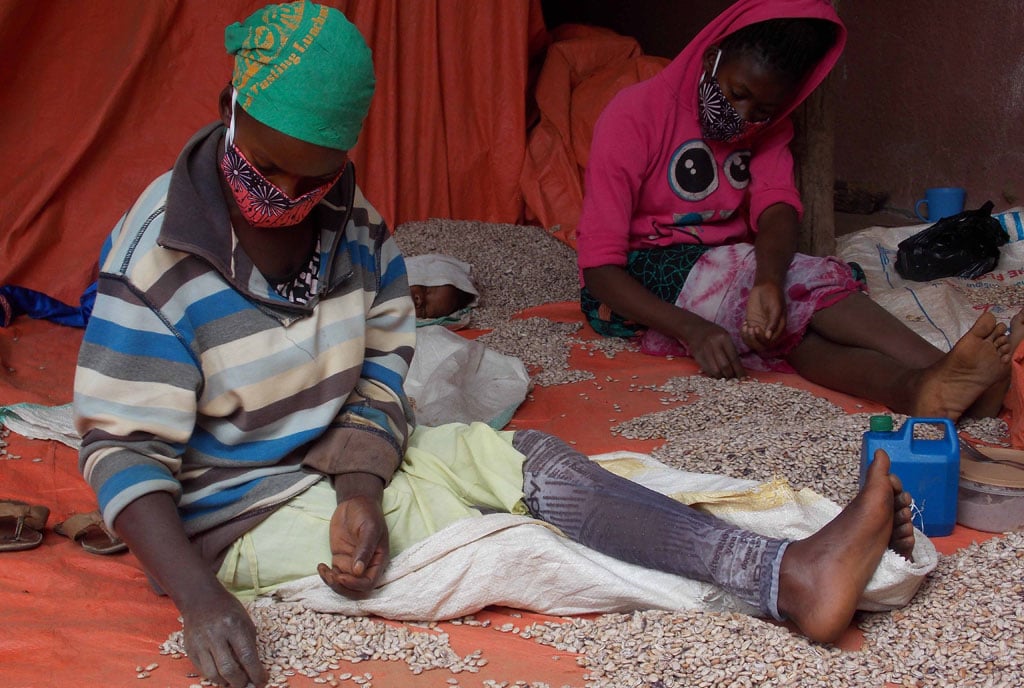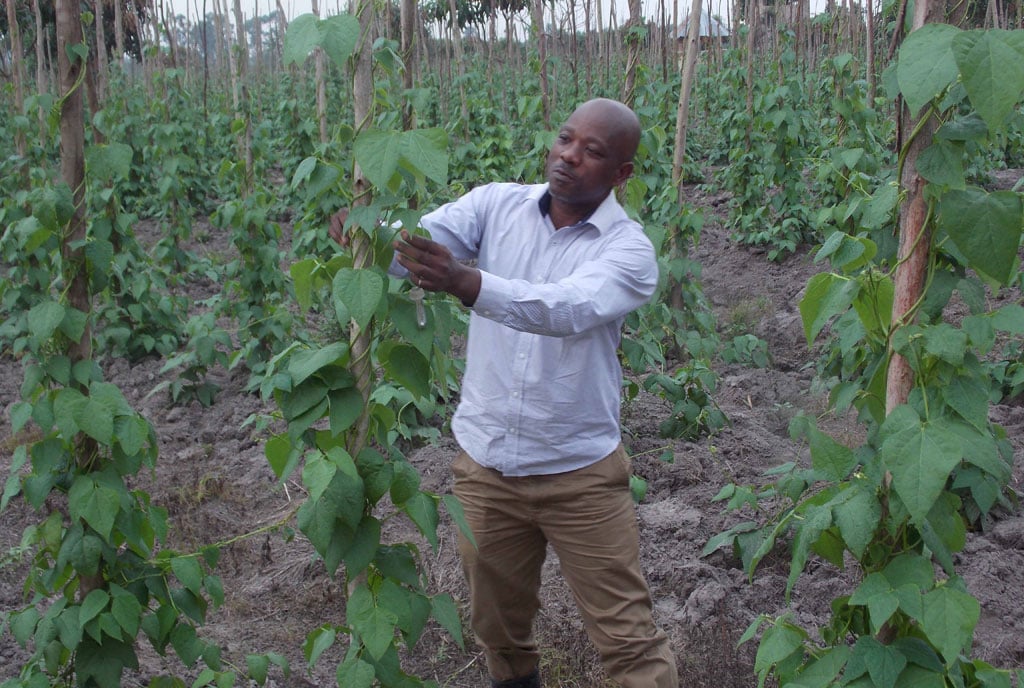
Farmers sort their bean seeds. PHOTO/MICHEAL J SSALI
When referring to farmer seed varieties, it is plain to say that these seed varieties are grown by farmers and have been in the community for over 10 years.
Farmers can create seed banks where they keep these seeds amongst themselves and use them again in planting which is picked from a selection of their harvests without buying them from the market or seed companies.
Experts estimate that as a country, we have about 80 percent of the seeds grown and managed by farmers and this is fondly a practice in the rural communities.
Here, farmers discuss their thoughts on a regulatory framework for the different seed varieties and how these policies can be actioned to increase food sovereignty.
Issue
Margaret Masudio, the chairperson of ESSAF women’s forum said that the national seed policy favours seed companies. However, it does not adequately stipulate the need for farmers to register their seeds.
She suggests, “Whereas the 2018 national seed policy protects farmer seeds, it should also consider farmer seed registration.”
Masudio also states that “the costs incurred and processes evolving seed registration should be reviewed to make it easy for farmers to register their variety and benefit commercially as custodians of the seed.”
According to Jackline Akera, a farmer from Oding Parish, Unyama Sub-county, Gulu District, these policies will help farmers improve their seedlings and planting processes.
She says, “It will help us farmers to see how we can plant our seedlings and also look at whether the seeds we are planting have been recognized while assessing the germinating ability and the yield from the other part of the country or community.”
Seeds of Gold has learned that statistics from the Uganda Seed Traders Association (USTA), an umbrella body of seed companies licensed to operate in the country, show a very rapid increase in the sales of maize seed between 2014 and 2017.
“The sale of hybrid rose from 309 metric tonnes in 2014 to 10,721 metric tonnes in 2017- a 97 percent increase while sales of open-pollinated varieties grew 81 percent, from 835 metric tonnes in 2014 to 4,339 in 2017,” the statistics indicated.
Therefore, the figure also shows that farmers are increasingly opting for hybrid maize seeds over the open-pollinated varieties that are usually saved and replanted.
Though seed companies sold 526 metric tonnes more open-pollinated than hybrids in 2014, this publication learned that the trend had dramatically reversed by 2017, when hybrids outsold open-pollinated by 6,382 metric tonnes. In other words, more farmers are abandoning the so-called “farmer-saved” seeds and choosing to buy hybrid seeds every season.
Another farmer from Gulu Josephine Amony points out the rampant cases of aflatoxins, especially in grains which require a regulatory framework. She shares, “The government promotes safe consumer foods through testing grains moving across borders and once they come back having aflatoxins there is no way you can export and, in this way, it creates a healthy livelihood.”
Challenges
Masudio highlights the lack of access to quality seed as one of the problems faced by farmers in rural areas.
She says, “There are some varieties which are supplied by the government but also are poor yielding which means that they can yield well one season and the next season you do not see any yield.” The expert shares that these foreseen challenges have been mended through the existing farmer field schools through research-based solutions. She explains, “At the schools, we can come up with objectives on high yielding, drought tolerant, pests and disease resistance through which we select crops subjected to study in the same soil.”
The poor yielding seeds according to Josephine Among, a farmer have affected both planting and storage processes.
She explains, “Sometimes they harvest when the grain is not properly dried, and they do not have proper storage facilities whereas others harvest it earlier to match the good price and that is the biggest cause of aflatoxin.”
Masudio further notes the challenges arising from the high costs incurred by farmers in purchasing these seeds adding that, “they are not easily accessible by farmers since there are few seed companies in the rural areas.”
Much as these seeds have proven to be not only expensive but inaccessible, they have lost grip of a big market segment among farmers groups.
David Ocaya, a farmer from Loyo-boo village says rural communities have moved away from purchasing indigenous seeds.
He says, “There is no market for our traditional seedlings of ‘Lamola’ and hence people are not planting them as well.”
Call to action
In 2007, the African Union adopted the African Seed and Biotechnology Programme (ASBP) as a comprehensive strategy to develop the seed sector and related biotechnology in Africa, taking into account the different needs of various countries and regions but forgot recognising farmers’ varieties.
On the same note, Uganda also recognises the special role of biotechnology in its national seed strategy (2014/2015 – 2019/2020), which aims at “ensuring availability of, and access to safe and high-quality seed and planting materials under a pluralistic seed system.”
However, ordinary farmers claim that they continue to suffer if their varieties are not recognised and if policymakers keep passing highly restrictive laws based on false claims and misplaced fears.
The farmers urge the government for policies to regulate farmer seed varieties to make seed accessible to rural farmers’ communities and leverage food security.


